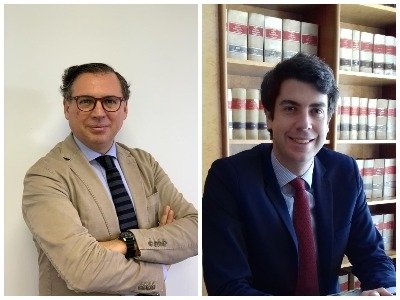Outlook 2020: Digital transformation is no longer optional

The managing partners of eight large law firms in Spain and Portugal agree that 2020 will be marked by the great advance of technology and its impact on the legal profession. Knowing how to adapt to the change brought about by the irruption of legal tech will be one of the main challenges that firms will have to face
 Iberian Lawyer has spoken with the managing partners of eight firms in Spain and Portugal to find out their forecasts for the market for next year. According to most of them, in 2020 we will continue to witness a breakthrough of the most groundbreaking technologies, such as artificial intelligence or blockchain, and how these continue to impact society and of course also the legal profession. Being committed to innovation and digitization must be a very important part of the plan for law firms next year. New technologies and tools that of course make services more efficient while offering more competitive prices, but above all, they adapt to the changing needs of customers. The continuous consolidation of legal tech will also strengthen the presence in the market of new agents with methods of providing legal services based on technology, which many believe will bring a radical change in the sector. Much has been said in recent weeks about the possible arrival of Axiom Law, the largest alternative provider of legal services, to the Spanish market. However, for now this arrival has not been confirmed. The presence of these players in the market makes it difficult, among other things, to recruit and retain the best talent. In the coming year, law firms, in addition to being technically excellent, also need to be socially committed, and to continue developing measures and policies that promote equality, flexibility, and the creation of diverse and inclusive work environments, for example. Of course, the legal sector is no stranger to external elements, and the slower growth rate forecast for Spain and Portugal for 2020 is also a cause for concern, as are the uncertainties caused inside and outside the Iberian zone by factors such as Catalonia, Brexit or the US elections, for example. Market volatility and restrictive trade policies that could limit the interest of foreign investors are also among the concerns of some firms. Expansion abroad, especially in Latin America, a key region for Iberian firms, will once again be a key point in the firms’ roadmap, and domestically, we will see if the forecasts of those market voices that in 2019 announced the possible arrival of more U.S. firms in the Spanish market are fulfilled. Each of the managing partners has answered three questions about what they believe 2020 holds for the legal sector: 1. What do you think will be the biggest opportunities for law firms in 2020? 2. What will be the biggest challenges law firms will face in the coming year? 3. What do you think will be the major developments in the legal market in the next 12 months?
Iberian Lawyer has spoken with the managing partners of eight firms in Spain and Portugal to find out their forecasts for the market for next year. According to most of them, in 2020 we will continue to witness a breakthrough of the most groundbreaking technologies, such as artificial intelligence or blockchain, and how these continue to impact society and of course also the legal profession. Being committed to innovation and digitization must be a very important part of the plan for law firms next year. New technologies and tools that of course make services more efficient while offering more competitive prices, but above all, they adapt to the changing needs of customers. The continuous consolidation of legal tech will also strengthen the presence in the market of new agents with methods of providing legal services based on technology, which many believe will bring a radical change in the sector. Much has been said in recent weeks about the possible arrival of Axiom Law, the largest alternative provider of legal services, to the Spanish market. However, for now this arrival has not been confirmed. The presence of these players in the market makes it difficult, among other things, to recruit and retain the best talent. In the coming year, law firms, in addition to being technically excellent, also need to be socially committed, and to continue developing measures and policies that promote equality, flexibility, and the creation of diverse and inclusive work environments, for example. Of course, the legal sector is no stranger to external elements, and the slower growth rate forecast for Spain and Portugal for 2020 is also a cause for concern, as are the uncertainties caused inside and outside the Iberian zone by factors such as Catalonia, Brexit or the US elections, for example. Market volatility and restrictive trade policies that could limit the interest of foreign investors are also among the concerns of some firms. Expansion abroad, especially in Latin America, a key region for Iberian firms, will once again be a key point in the firms’ roadmap, and domestically, we will see if the forecasts of those market voices that in 2019 announced the possible arrival of more U.S. firms in the Spanish market are fulfilled. Each of the managing partners has answered three questions about what they believe 2020 holds for the legal sector: 1. What do you think will be the biggest opportunities for law firms in 2020? 2. What will be the biggest challenges law firms will face in the coming year? 3. What do you think will be the major developments in the legal market in the next 12 months?
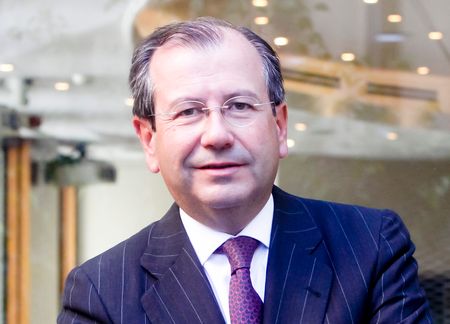 FERNANDO VIVES Executive Chairman and Managing Partner of Garrigues
FERNANDO VIVES Executive Chairman and Managing Partner of Garrigues
1. I would say that the sectors that are currently thriving in the Iberian market are energy and real estate, and that’s likely to continue next year. Nevertheless, we must be cautious as market volatility, political uncertainty and restrictive trade policies may limit foreign investors’ interest. Abroad, Latin America, which has further room for expansion, will be again a key region for Iberian law firms. At Garrigues, this region has seen the largest growth in the last few years thanks to the consolidation of our offices in Brazil, Chile, Colombia, Mexico and Peru. Our aim is to become a leader in Latin America in the same way as in Continental Europe.
2. The legal sector is rapidly changing. The market is becoming more and more mature; competition is coming from traditional players, newcomers and technology-driven methods of delivering legal services; hiring is becoming more difficult… That said, I am confident that Garrigues is taking the right steps, always in keeping with our culture.
3. I’m sure that we’ll see interesting developments as digital transformation is no longer optional for law firms; it is a vital step that our clients are demanding of us. I firmly believe that the eruption of technology and the appearance of new players are helping us to keep moving forward, to be better. New services and business models will surely continue to appear in the coming months, but I’m not concerned as we have a talented team that brings new ideas to the table each and every day.
 NUNO GALVÃO TELES Managing Partner of Morais Leitão
NUNO GALVÃO TELES Managing Partner of Morais Leitão
1. For a full service firm such as Morais Leitão, there are plenty of opportunities, reflecting the evolution of the different sectors of the economy. Transactional work increased in 2019 – traditional M&A but also a great boost in private equity, including venture capital, and NPLs. Real estate has been very strong and will probably remain a strong opportunity both in corporate and in financing. Also, both regulatory advice (antitrust, merger control) and compliance have been growing, partly due to more active public entities. 5G will consolidate the interest it has been receiving, as the coverage is amplified. As such, 2020 will continue current trends, albeit at a more conservative rhythm in terms of major investment operations given the weaker outlooks for European economies. Contrary to this scenario, we expect that public investment will likely grow from very low levels, including railways and ports. The Angolan privatisation programme, recently announced by the Government, is definitely a key opportunity, given the strong links between both countries. 2. In the past two years, there has been a realignment of strategies 20 | Iberian Lawyer 90 OUTLOOK 2020 and brands across the Portuguese legal market, along with serious investment in legal tech (including AI technology) and major team movements. 2020 will probably echo and put these changes to a test in a less favourable economic scenario. Law firms in Portugal are already challenged by price efficiency and adequate profitability rates in a highly competitive market; we’ll see how everyone adapts to a new economic outlook characterised by strong changes in the types of investment and market operations. Talent retention, particularly of millennials, is a strong challenge, given the delicate balance between worklife and personal life and also the strong competition from in-house teams. 3. I expect that the movement for concentration of firms will further develop; at a time when scale is so important, both in talent retention and in investment (e.g. cybersecurity), firms will have to adapt themselves in terms of their size and strategy. Talent strategies will also matter, redefining the market.
 SALVADOR SÁNCHEZ-TERÁN Managing Partner of Uría Menéndez
SALVADOR SÁNCHEZ-TERÁN Managing Partner of Uría Menéndez
1. This year we have registered good levels of activity regarding M&A transactions in sectors such as real estate, services and energy. The performance of our Litigation and Arbitration, Tax and Labour departments has also been very good. Despite the slower growth rate foreseen for Spain and Portugal in 2020, and the economic uncertainties in and out of Iberia (Spanish elections, Catalonia, Brexit, US elections, etc.) we expect this trend in activity to be stable in 2020. On another note, we believe that an important hub of opportunities will result from accompanying our clients in their technological needs in areas such as fintech, legal tech, data protection, etc. Regarding markets, Latin America will remain to be crucial for Iberian Firms in the near future. Furthermore, the recently-signed free trade agreement between Mercosur and the European Union will most probably also generate interesting opportunities for law firms. 2. Hiring and retaining the best talent is one of our ongoing biggest challenges. Adapting to the concerns and interests of new generations, while dealing with a demanding industry such as ours, is of outmost importance for the sustainability of our firms.. The growing use of technology in our profession in search for greater efficiencies will continue to be in the spotlight in the coming years. The quest for competitiveness definitely comes by the hand of technology. 3. We don´t expect any short term changes in the Spanish or Portuguese legal markets that will have a severe impact.
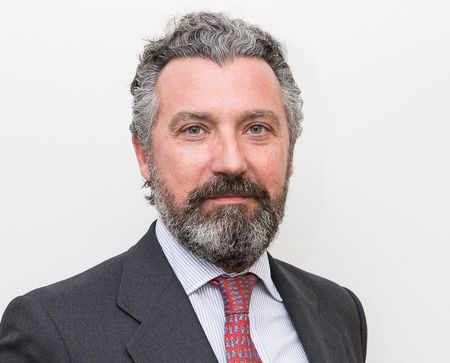 JESÚS VARELA Managing Partner of Dentons Spain
JESÚS VARELA Managing Partner of Dentons Spain
1. Hard-to-predict. It will probably be closely related to investors’ perceptions of market behaviour in relation to Spain. The political situation could be a determining factor, in a context in which some agents speak of a slowdown and even a global recession. Dentons Spain maintains levels of activity similar to those of 2017 and 2018, but we do appreciate that the market is becoming more institutionalised and stabilised, with fewer distressed or arbitrage opportunities. The opportunities will, in our opinion, be sectoral (certain sectors of the economy, such as energy, real estate, health or new technologies, will offer good opportunities). 2. In a legal market as mature as the Spanish, the challenges will be related to diversification and differentiation. How can we differentiate ourselves from our clients? What special services, what specific added value does each firm offer in relation to its competitors? The great challenge is differentiation, standing out in this market for something that the competition cannot offer. 3. If we are referring to big market entries or buy-outs, mergers, etc, I do not anticipate major changes. Dentons is growing in a differentiating way, and this will be noticed. Other firms will look for stability in the market, to stay as they are. Some are betting on improving their profitability, damaged in recent years by price competition and other factors. But I anticipate a stable market with Dentons as the big surprise.
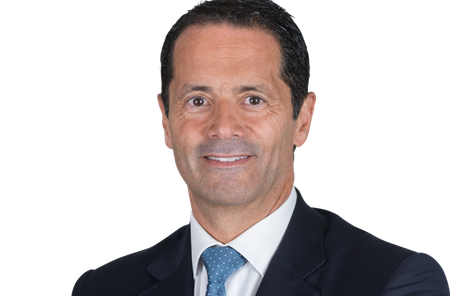 JOÃO VIEIRA DE ALMEIDA Managing Partner of VdA
JOÃO VIEIRA DE ALMEIDA Managing Partner of VdA
1. I am optimistic about 2020 as far as business is concerned, but do not expect major new opportunities to pop up. Demand is expected to remain steady, along the lines of 2019. On a different front, however, there are opportunities to explore but, hélas, those are basically the same as the challenges in your question below: improving efficiency (e.g. by streamlining service lines and accelerating the introduction of AI systems and processes); educate and push the organisation and clients to continue to shift from hourly rates to value added fees; develop collaborative platforms within the firm and with third parties, to respond to shifting and increasingly complex clients’ needs. 2. On top of materialising the opportunities referred to above: increased pressure from competitors (be it other law firms or alternative service providers) in a limited and crowded market. 3. There could be some consolidation at mid-market level, and a global player may open an office in Lisbon.
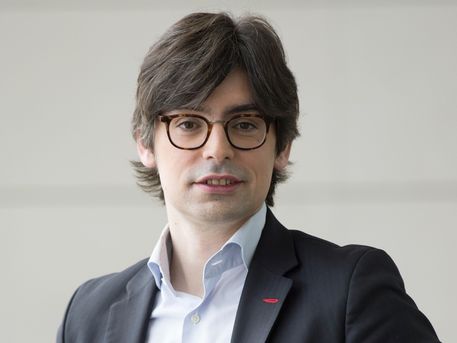 ALEJANDRO TOURIÑO Managing Partner of ECIJA
ALEJANDRO TOURIÑO Managing Partner of ECIJA
1. The legal market is going through an excellent period. Clients push law firms to accompany them in their corporate challenges, from the day-to-day operation to the internationalization or digital transformation of their businesses. The market is also active. Investment continues to grow and the entry of venture capital and private equity in sectors such as technology are realities that we see every day. In addition, new business opportunities are opening up as a result of the enactment of new regulations at European level, both in the regulatory scene and in terms of regulatory compliance. 2. Law firms tend to look sideways rather than forward when faced with an opportunity or challenge. Spanish firms saw years ago how Anglo-Saxon firms entered the market, then it was the Big4 who took part in the game and now we see how it is ABS and “non legal providers” who appear on the scene to make us compete for the best talent and the best deals. In short, keeps evolving, just as clients do, which forces firms to adapt to change in the most agile way possible, under penalty of not surviving. It is nothing more than Darwin’s theory of evolution: it is not the strongest that prevails, but the one that best adapts to change. 3. There is talk again of the entry of more foreign operators, but for me the main change is the consolidation of legaltech and the appearance of new players in the market, out of the traditional legal scene. In my opinion, these new operators acting under the umbrella of legaltech represent the dawn of a radical change in the Spanish and European legal sector.
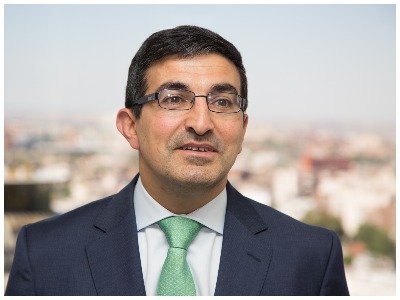 LUIS FERNANDO GUERRA Global Leader of Deloitte Legal and Managing Partner of Deloitte Legal Spain
LUIS FERNANDO GUERRA Global Leader of Deloitte Legal and Managing Partner of Deloitte Legal Spain
1. I believe that the main opportunities next year will be linked to the uncertainties arising from the economic cycle, which will require all firms to make an additional effort to identify those projects with the greatest added value, which is undoubtedly closely related to the commitment to innovation and the implementation of models that make the legal function within companies more efficient. In a complex environment, what companies demand are lawyers who know the client’s business perfectly, thus avoiding the cost of the learning curve, and who involve themselves creatively and proactively in the day-to-day running of the company, which means understanding both the risks inherent in each sector of economic activity and the main areas of development. In this sense, and this is a trend that has been consolidating in recent years, the growing regulatory complexity will allow those firms with a clear sectoral vocation to accompany companies in improving efficiency and productivity, through preventive advice and mitigation of the risk associated with regulation. On the other hand, it cannot be overlooked that we are witnessing a paradigm shift in the business management model that involves the definitive incorporation of social and environmental objectives into economic activity. This opens up a wide range of new legal challenges in the areas of sustainable finance, gender equality, conciliation and labour flexibility. 2. Law firms have the unquestionable challenge of adapting to change. To the change brought about by the irruption of Legal Tech, the new regulatory environment, or the incorporation into the labour market of a generation of lawyers who demand that firms not only be technically excellent but also socially committed and responsible. For this reason, our Firm has been committed for years to innovation, to the development of a legal practice that is clearly focused on the client and on the contribution of added value to business activity, and to a talent management model that is committed to the flexibility and personal growth of each and every one of the professionals that make up the Firm. Being differentials in internal management, we also manage to be differentials in the work we carry out for all the companies we advise. 3. I believe that in the coming months we will see a profound change in the way we provide legal advice services, as a consequence of the incorporation of technology, which will allow the lawyer to concentrate on the tasks of greater added value and provide greater efficiency to more repetitive or routine processes or projects. This phenomenon will mean the consolidation of those firms that are capable of providing differential services, which can be identified by companies as an element of improvement in their positioning in the respective sector. And this is no longer exclusively linked to maximising economic profit, but also to the development of its activity in a sustainable way in relation to its model, its customers and suppliers.
 DUARTE DE ATHAYDE Managing Partner for Abreu Advogados
DUARTE DE ATHAYDE Managing Partner for Abreu Advogados
1. Globalization is driving scientific and technological progress, making the European dimension ever more important in boosting knowledge, mobility, competitiveness and innovation. The opening up of huge new markets creates vast new opportunities for Europeans, but it will at the same time test Europe’s capacity to further adjust to structural change and manage the social consequences of that change. This is even more true for Iberian, where the growth has been minimum. The transformation to a knowledge and service economy is as great challenge for Europe but even more profound for Portugal and Spain. When looking to Portugal, a lot is being done in terms of this transformation and we have been active as advisors to many service companies or multinationals that are moving their services centres to Portugal, but this is still not enough, so I believe this trend will remain and this means more work opportunities in this area. Also, I believe that the projects around real estate, tourism, private equity investments will continue to grow next year, meaning also the slow growth of M&A activity that already occurred in 2019. On another hand we have been observing, last years, a change of business generations and, with it, the increasing of legal services for family owned organizations in planning business succession. Although there is some caution when talking about this, the family companies’ owners knows this is key for the activity future and must be a priority. The failure to plan generational change may take a great company to unprepared “hands” with, most of the times, business failure. 2. The challenges are not new for 2020 but I believe it will still remain on law firm’s top list of “must think about it”. Alongside many other issues I still highlight technology and its high-speed change. The worldwide organizations are moving fast into the technology reality and dealing at a daily basis with new topics and issues. As the tech organizations move forward – with topics such as drive-less cars, digital coins, facial recognition, etc. -, it brings challenges to the citizens and organizations, and lawyers must be a step ahead for better understanding of the situations and propose legal solutions for the market new realities. I truly believe that it will divide our market, and firms stuck in past reality, will not probably survive. With technology also comes new threats, so the cybersecurity will remain a hot topic on law firms 2020 agenda. On a final note I believe the war for talent and finding ways to thrive around this huge challenge law firms face for finding and holding on to the best, will still be a major challenge, at least we at Abreu Advogados have this concern as our top priority. 3. I believe worldwide law firms are doing a great job in better understanding of client needs, law firms are looking for new ways to provide different services to their clients, helping companies from the beginning to the end in many operations. Firms know that clients expect the legal expertise for better facing uncertainty times but also for new opportunities. Smart firms do much more than law, we do business strategy with “law lenses” for companies daily challenges, so one of this developments might be the law firms going after the consultancy business instead of the other way around. Other major development may happen, as law firms turn from technology heavy consumers to technology producers. Some shy projects are already out there, but I believe the more and more we will assist to this change as law firms are setting up large teams of IT developers working alongside tech save brilliant lawyers to create new technology for their internal use and also to their clients. I the Iberian market I believe that we will keep witnessing to partner and team moves between firms, but also there is still room for more consolidation, so some mergers may still occur is Iberian markets. At Abreu Advogados, we are preparing ahead for these developments, not only for 2020 but thinking about 2025 and what type of firm we have to be so stay in the big four in the next years.
To read the article in full please download issue N.90 here










